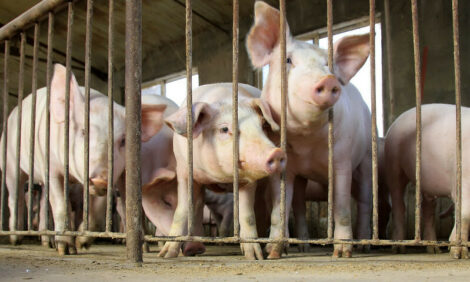



CAP Reforms Face Bumpy Ride with EU Parliament
ANALYSIS - The reforms of the Common Agricultural Policy could be in for a bumpy ride when they come before the European Parliament.At the recent conference of the National Farmers Union in the UK, the reforms that have been proposed by the European Commission were severely questioned by the farmer representatives.
The UK politicians including the Secretary of State for Environment, Caroline Spelman, and the farming minister Jim Paice, also pledged to ensure the reforms would not penalise British farmers.

And the agriculture commissioner Dacian Ciolos said the greening of the Common Agricultural Policy would take into account measures that have already been taken to encourage biodiversity and schemes that look towards the ecology in sustainable farming.
However, the reforms face a further challenge from within the European Parliament itself.
Paolo de Castro, the chairman of the European Parliament's Committee on Agriculture and Rural Development warned that the reforms were taking place at a time of unprecedented volatility in the farming sector and European farm production potential had to be defended.
He said there is a serious issue with food security and there is a need for strong policies and adequate resources in the CAP after 2013.
"The CAP should remain primarily an economic policy in support of a strategic sector," said Mr de Castro.
""We cannot design the future CAP just as an environmental policy."
He said that the combination of competitiveness and sustainability was the only way forward and the policy had to be designed to protect farmers from increasing exposure to market risk.
He called for flexibility in the reforms to allow farmers and states to adapt if necessary and he said the text of the reforms needs several changes.
He said there were flaws in the concept of a mandatory seven per cent set aside included in the greening proposals of the reforms.
"How can we reconcile proposals like this one with the goal of having a more competitive agriculture and an increased production?" Mr de Castro said.
"Too strict requirements make difficult joining the greening for EU farmers and the risk is that a relevant amount of resources can be moved away from agriculture."
He said the greening plans will lead to restrictions of production as reduction in market orientation and additional bureaucracy.
He added that the reforms are also insufficient in terms of crisis management and they do nothing to address the concerns over price volatility.
He said that direct payments can play a part in countering market volatility.
"Many proposals of the Commission are valuable and the idea of a better targeted support is welcome," Mr de Castro said.
"But this goal must be pursued without jeopardising the economic viability of EU farmers and ensuring an adequate degree of flexibility to member states in applying the new system of direct payments."






